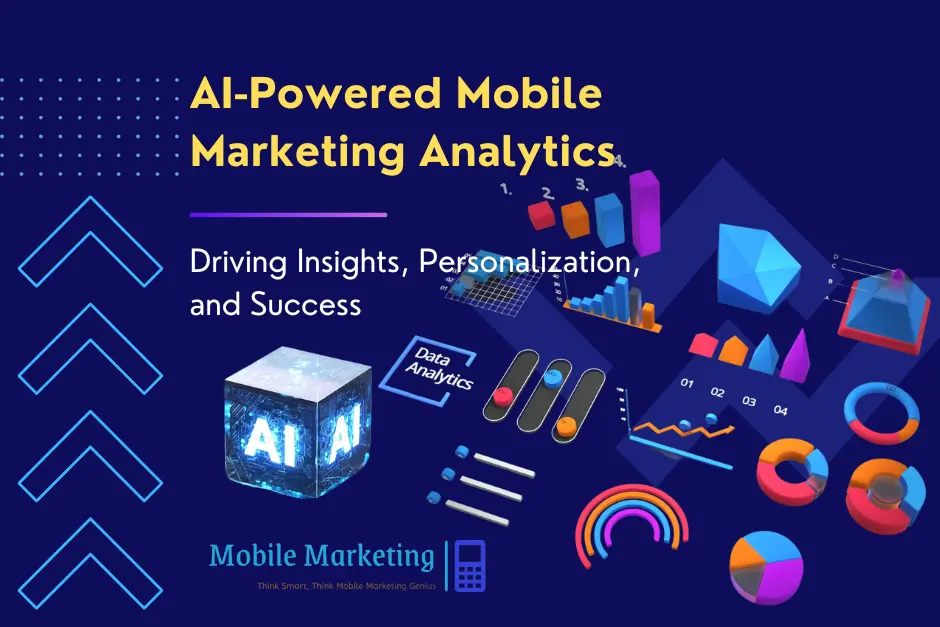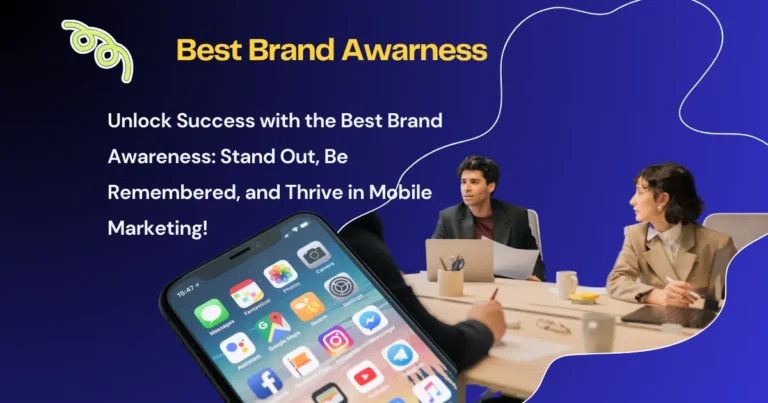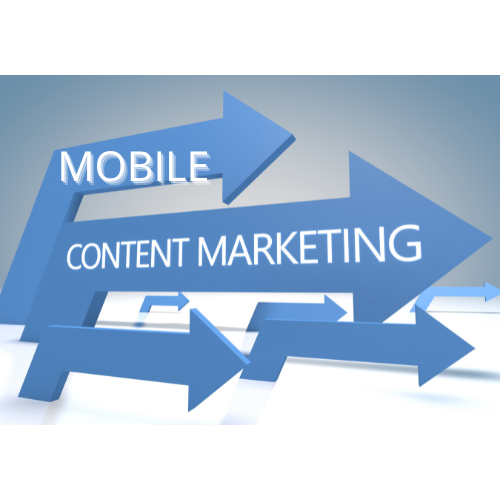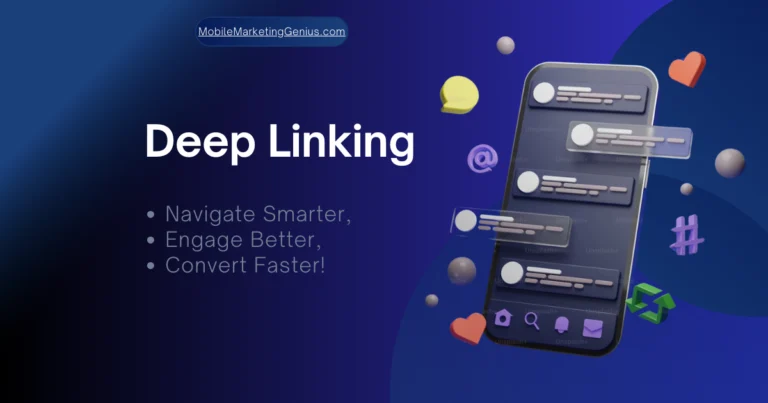Unlocking the Power of AI in Mobile Marketing Analytics: Predictive and Personalization Strategies for Success

In today’s fast-paced digital landscape, mobile marketing has become a cornerstone for businesses seeking to engage their audiences effectively. With billions of users spending hours on their smartphones daily, marketers face immense opportunities—and equally significant challenges—in capturing attention and driving conversions. Traditional marketing methods, while still relevant, often fall short in delivering the personalized, data-driven experiences modern consumers expect.
Mobile Marketing Analytics leverages AI-driven technologies like machine learning and predictive analytics to transform raw data into actionable insights. By identifying patterns and trends, AI empowers businesses to forecast customer needs, deliver tailored experiences, and maximize their return on investment (ROI). From personalized push notifications to dynamic content recommendations, AI enables marketers to engage users in ways that were once unimaginable.
This article delves into the transformative power of AI in mobile marketing, focusing on predictive analytics and personalization strategies. We’ll explore how these technologies are reshaping the industry, provide practical examples, and highlight tools you can leverage to stay ahead of the competition. Ready to harness AI for your mobile marketing efforts? Let’s dive in.
Table of Contents
Understanding AI in Mobile Marketing Analytics
What is AI in Mobile Marketing Analytics?
Artificial Intelligence (AI) is no longer a futuristic concept; it’s a transformative force reshaping industries, including Mobile Marketing Analytics. In essence, AI refers to the simulation of human intelligence in machines, enabling them to analyze vast datasets, identify patterns, and generate actionable insights. When applied to Mobile Marketing Analytics, AI empowers businesses to achieve unparalleled precision and efficiency in targeting, engaging, and converting their audiences.
Key AI Technologies in Mobile Marketing Analytics
AI in Mobile Marketing Analytics leverages several advanced technologies:
- Machine Learning: Enables systems to learn from historical data and improve over time, enhancing predictions and marketing outcomes.
- Natural Language Processing (NLP): Deciphers customer sentiment and intent, crucial for personalized communication and messaging.
- Predictive Analytics: Identifies patterns in data to forecast customer behavior and trends, allowing marketers to make proactive decisions.
These technologies form the backbone of AI-driven strategies, helping marketers deliver highly tailored experiences that resonate with their target audience.
The Role of AI in Transforming Mobile Marketing Analytics
AI significantly enhances Mobile Marketing Analytics by:
- Generating Actionable Insights: It processes and analyzes vast amounts of data, revealing trends and opportunities for optimization.
- Automating Repetitive Tasks: Tasks such as A/B testing, audience segmentation, and campaign scheduling are streamlined, freeing marketers to focus on strategic initiatives.
- Delivering Hyper-Personalized Experiences: AI-driven algorithms analyze user behaviors and preferences to recommend products, services, or content in real time.
For example, an AI-powered system can identify a user’s browsing habits and purchasing patterns, using this data to recommend personalized products or create targeted advertising campaigns. This not only boosts engagement but also drives conversions and increases ROI.
By integrating AI in Mobile Marketing Analytics, businesses can overcome traditional challenges like fragmented data, suboptimal targeting, and resource inefficiencies. Companies leveraging these insights gain a competitive edge by delivering personalized strategies that resonate deeply with their audience.
The Power of Predictive Analytics in Mobile Marketing
What is Predictive Analytics?
Predictive analytics is the process of using historical data, statistical algorithms, and machine learning techniques to identify future outcomes and trends. In the context of mobile marketing, predictive analytics helps businesses anticipate customer behavior, optimize marketing strategies, and make data-driven decisions. By analyzing patterns within user data, AI-powered predictive models can forecast customer needs, enabling marketers to craft campaigns with higher precision.
Benefits of Predictive Analytics
Improved User Segmentation and Targeting
Predictive analytics allows marketers to divide their audience into highly specific segments based on past behaviors, preferences, and demographics. This leads to more relevant and engaging campaigns tailored to each group.
Enhanced Campaign Performance Through Data-Driven Insights
Data-driven marketing strategies outperform intuition-based approaches. Predictive analytics enables marketers to test and refine their campaigns, optimizing for higher conversion rates and improved ROI.
Forecasting Market Trends for Proactive Strategies
Understanding future market trends is invaluable for staying competitive. Predictive analytics helps businesses anticipate changes in customer demands, enabling them to adjust their marketing strategies proactively.
Use Cases
- Predicting Customer Churn and Retention Strategies
Predictive analytics can identify users at risk of disengagement by analyzing signals like reduced app usage or unfulfilled transactions. This allows businesses to implement retention strategies, such as personalized offers or re-engagement notifications, to win back customers. - Identifying High-Value Customers and Personalizing Offers
Predictive models help marketers identify high-value users who are likely to make repeat purchases or refer others. These insights allow businesses to provide exclusive offers or loyalty programs to retain these valuable customers. - Examples from Key Industries
- E-commerce: AI-driven analytics can recommend personalized product suggestions, increasing cart value and customer satisfaction.
- Finance: Predictive analytics helps identify fraudulent activities while offering customers targeted financial products.
- Gaming: In gaming apps, predictive analytics can analyze player behavior to offer tailored incentives, increasing engagement and in-app purchases.
Table 1: Comparison of Top AI-Powered Mobile Marketing Tools
| Tool Name | Key Features | Best For | Pricing | Integration Capabilities |
|---|---|---|---|---|
| Salesforce Einstein | Predictive analytics, customer segmentation | CRM-driven marketing | Starts at $25/user | Seamless integration with Salesforce CRM |
| Adobe Sensei | Image recognition, content personalization | Multimedia and content-heavy marketing | Custom pricing | Integration with Adobe Creative Suite |
| HubSpot AI | Email personalization, content creation automation | Small to medium-sized businesses | Starts at $50/month | Supports major CRMs and marketing tools |
| Google Marketing Platform | Ad optimization, audience insights | Data analysis and ad campaigns | Custom pricing | Strong integration with Google Ads/Analytics |
Table 2: Benefits of Predictive Analytics vs. Traditional Analytics
| Feature | Traditional Analytics | Predictive Analytics |
|---|---|---|
| Focus | Descriptive: Focuses on past performance | Predictive: Anticipates future trends and behavior |
| Data Usage | Historical data only | Historical and real-time data |
| Insights | Static, retrospective insights | Dynamic, actionable insights |
| Personalization | Limited | Highly tailored user experiences |
| Campaign Optimization | Post-campaign analysis | Pre-emptive adjustments for ongoing campaigns |
| User Engagement | Generalized targeting | Specific, segmented targeting |
Personalization Strategies with AI
The Importance of Personalization in Mobile Marketing
In today’s competitive digital landscape, consumers demand personalized experiences that resonate with their preferences and needs. Generic marketing messages no longer capture attention or drive engagement. Instead, modern users expect tailored interactions that make them feel understood and valued. Personalization has shifted from being a competitive advantage to a necessity for mobile marketers seeking to retain and grow their user base.
AI has revolutionized personalization by enabling hyper-personalized experiences at scale. Unlike traditional methods, AI can analyze vast amounts of user data in real time, identifying patterns and preferences to deliver highly relevant content. By leveraging machine learning and predictive analytics, AI ensures that every touchpoint—whether an email, push notification, or app interface—is uniquely tailored to individual users. This not only enhances user satisfaction but also boosts engagement, loyalty, and conversion rates.
AI-Driven Personalization Techniques
Real-Time Content Delivery Based on User Behavior
AI allows marketers to deliver content dynamically based on real-time user behavior. For example, an e-commerce app might showcase product recommendations tailored to a user’s recent browsing history or purchase patterns, ensuring a seamless and engaging experience.
Personalized Push Notifications and In-App Messages
Push notifications powered by AI can go beyond generic alerts. They use behavioral data to send personalized messages that align with user preferences. For instance, a fitness app might notify a user about workout tips based on their activity history, driving engagement and app retention.
Adaptive User Interfaces Powered by AI
AI enables the creation of adaptive interfaces that adjust to user preferences. For example, a streaming app might rearrange its homepage to highlight genres or shows that align with a user’s past viewing habits, creating a more intuitive and enjoyable user experience.
Case Studies
Examples of Companies Successfully Leveraging AI for Personalization
- Spotify: Uses AI to create personalized playlists like “Discover Weekly,” which recommends songs based on a user’s listening history and preferences. This has been a key driver of user satisfaction and retention.
- Amazon: Employs AI-driven recommendation engines to suggest products tailored to individual shopping behaviors, significantly increasing cart value and conversions.
- Netflix: Leverages AI to personalize movie and show recommendations, accounting for user ratings, viewing history, and preferences, resulting in higher viewer engagement.
Research indicates that personalized email campaigns deliver 29% higher open rates and 41% higher click-through rates than generic ones.
Companies utilizing AI for personalization report an average 20% increase in sales and a 15% improvement in customer satisfaction.
AI Tools and Platforms for Mobile Marketing
Overview of Popular AI Tools and Platforms
The rapid adoption of artificial intelligence in mobile marketing has led to the development of various tools and platforms designed to optimize campaigns, personalize user experiences, and analyze data at scale. These AI Tools for Mobile Marketing and AI Platforms for Mobile Marketing streamline marketing workflows, reduce manual effort, and provide actionable insights to enhance ROI. Popular AI-driven platforms include Salesforce Einstein, Adobe Sensei, HubSpot AI, and Google Marketing Platform. Each of these tools brings unique capabilities to help marketers achieve their goals, from advanced analytics to real-time personalization.
Key Features to Look for in an AI-Powered Marketing Platform
When selecting an AI marketing tool, businesses should evaluate the following features:
- Data Analysis and Predictive Modeling: The platform should provide robust data analysis capabilities, including predictive analytics to forecast customer behavior and trends.
- Personalization Capabilities: Tools must enable hyper-personalization by delivering tailored content, notifications, and recommendations based on user preferences.
- Integration Flexibility: An ideal platform should seamlessly integrate with existing marketing systems, CRMs, and other tools.
- Automation of Marketing Workflows: Look for platforms that automate repetitive tasks like audience segmentation, A/B testing, and campaign optimization.
- Real-Time Insights and Reporting: Real-time dashboards and performance metrics are critical for tracking and improving marketing efforts.
Comparing Tools: Salesforce Einstein, Adobe Sensei, and Others
- Salesforce Einstein: Offers predictive analytics, natural language processing, and automated lead scoring. It excels in customer segmentation and delivering personalized experiences, making it a powerful tool for businesses focused on CRM-driven marketing.
- Adobe Sensei: Integrated into Adobe’s suite of tools, providing AI-powered capabilities like image recognition, content tagging, and personalized recommendations. It’s particularly suited for marketers working with multimedia content.
- HubSpot AI: Focuses on optimizing inbound marketing strategies. It automates content creation, email personalization, and lead nurturing, making it an excellent choice for small to mid-sized businesses.
- Google Marketing Platform: AI-powered suite integrating tools like Google Analytics and Google Ads to provide advanced data analysis, audience insights, and ad optimization.
Challenges and Ethical Considerations
Common Challenges in Implementing AI in Mobile Marketing
Data Privacy Concerns
One of the most significant challenges in adopting AI for mobile marketing is ensuring data privacy. With AI relying on vast amounts of user data to deliver personalized experiences, businesses must comply with data protection regulations such as GDPR and CCPA. Failure to secure user data can lead to legal repercussions and loss of customer trust.
Integration with Existing Systems
Many organizations struggle to integrate AI tools with their existing marketing systems. Legacy software, incompatible formats, and siloed data can hinder the seamless adoption of AI technologies, delaying implementation and reducing effectiveness.
Cost and Complexity
AI solutions can be costly to implement and maintain, especially for small and medium-sized businesses. Additionally, the complexity of setting up AI models and analyzing outputs often requires specialized knowledge and resources, which not all organizations have readily available.
Ethical Considerations
Maintaining User Trust with Transparent Data Usage
As consumers become more aware of how their data is used, transparency is key. Businesses must ensure they inform users about data collection practices and offer clear opt-in and opt-out options. Transparency fosters trust, which is critical for long-term success in AI-driven mobile marketing.
Avoiding Algorithmic Biases
AI algorithms are only as good as the data they are trained on. Biased or incomplete datasets can lead to discriminatory outcomes, such as targeting or excluding specific demographics unfairly. Marketers must actively address these biases by auditing their algorithms regularly and ensuring diverse and representative datasets.
Conclusion and Call to Action
Artificial Intelligence is transforming the landscape of mobile marketing, enabling businesses to engage users with unprecedented precision and efficiency. Throughout this article, we’ve explored how AI-driven technologies like predictive analytics and hyper-personalization are reshaping marketing strategies, allowing companies to anticipate customer needs, deliver tailored experiences, and optimize ROI. From real-time content delivery to adaptive user interfaces, AI offers endless possibilities for enhancing customer engagement and satisfaction.
The importance of adopting AI in mobile marketing cannot be overstated. As consumer expectations evolve and competition intensifies, businesses that fail to leverage AI risk falling behind. By embracing AI tools and platforms, companies can unlock valuable insights, streamline workflows, and stay ahead of the curve. Whether through predictive analytics for trend forecasting or personalization strategies that resonate with individual users, AI empowers marketers to create impactful and memorable campaigns.
Now is the time to act. Businesses should start exploring AI-powered tools to harness the power of predictive analytics and personalization. Begin by identifying the right platforms, building a robust data strategy, and integrating AI into your marketing efforts. By doing so, you’ll position your business for success in the ever-evolving world of mobile marketing. Don’t wait—start transforming your marketing strategies with AI today.
FAQs About AI in Mobile Marketing
1. What is AI in mobile marketing?
AI in mobile marketing refers to the use of artificial intelligence technologies like machine learning, natural language processing, and predictive analytics to improve marketing strategies. It enables businesses to analyze user data, predict behaviors, and deliver personalized experiences.
2. How does predictive analytics help in mobile marketing?
Predictive analytics uses historical and real-time data to forecast customer behavior and trends. It helps marketers optimize campaigns, improve targeting, and anticipate user needs, leading to higher engagement and ROI.
3. What are the benefits of AI-driven personalization?
AI-driven personalization delivers tailored content, notifications, and recommendations to users based on their preferences and behaviors. This enhances user satisfaction, increases engagement, and improves customer loyalty.
4. Which industries benefit the most from AI in mobile marketing?
Industries like e-commerce, finance, gaming, entertainment, and healthcare benefit significantly from AI in mobile marketing. These sectors use AI to personalize experiences, optimize campaigns, and analyze customer behavior.
5. What tools are commonly used for AI in mobile marketing?
Popular tools include Salesforce Einstein, Adobe Sensei, HubSpot AI, and Google Marketing Platform. These platforms offer features like predictive analytics, content personalization, and real-time insights.
6. How does AI improve user engagement in mobile marketing?
AI enhances user engagement by analyzing behavior patterns and delivering relevant content. For example, it powers personalized push notifications, dynamic interfaces, and tailored recommendations that keep users interested.
7. Are there any challenges in implementing AI in mobile marketing?
Yes, challenges include data privacy concerns, integration with existing systems, high costs, and the complexity of AI technologies. Ethical considerations like avoiding algorithmic biases also need to be addressed.
8. How does AI ensure data privacy in mobile marketing?
AI tools can incorporate privacy-focused features like encryption and anonymization. Businesses must comply with regulations like GDPR and CCPA and adopt transparent data collection and usage practices.
9. What are the future trends in AI for mobile marketing?
Future trends include generative AI for content creation, voice search optimization, hyper-personalization, and the integration of AI with emerging technologies like augmented reality (AR) and the Internet of Things (IoT).
10. How can businesses get started with AI in mobile marketing?
Businesses can start by evaluating their goals and identifying AI-powered tools that align with their needs. Building a robust data strategy, training their teams, and integrating AI gradually into their marketing workflows are essential first steps.







One Comment
Comments are closed.